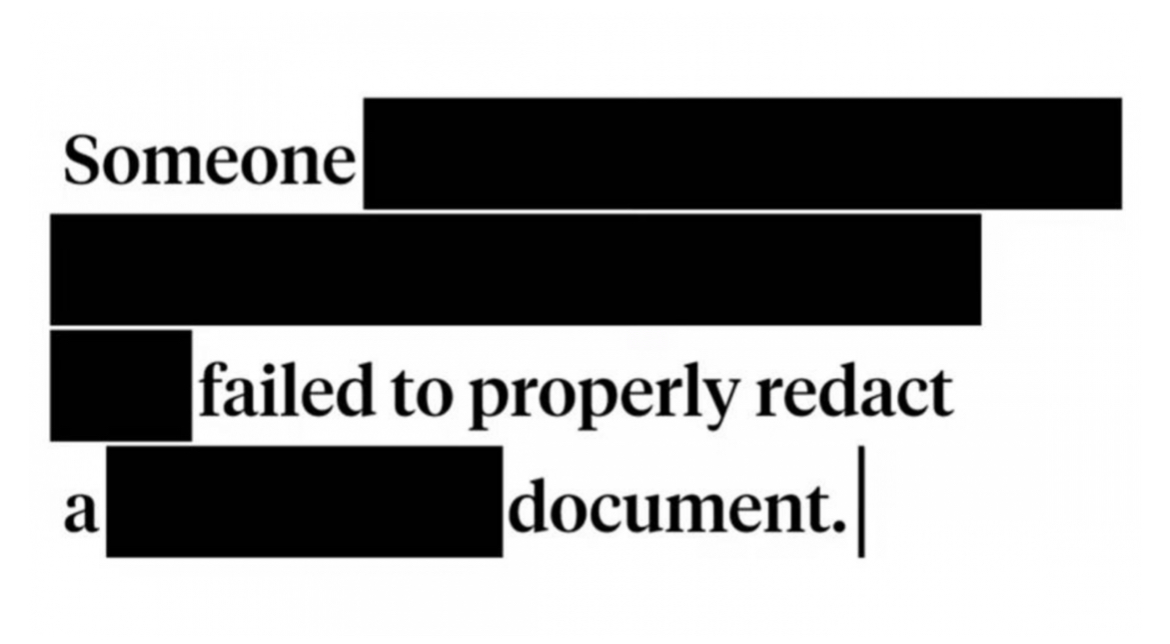
Redact.
“To obscure or remove (text) from a document prior to publication or release.”
https://www.merriam-webster.com/dictionary/redact
Unless you are a member of the media, a media attorney, a public agency official, or an assistant attorney general assigned to review open records appeals, “redact” is not a word you regularly hear in conversation.
But it currently dominates the news as a Florida federal judge magistrate decides whether, or to what extent, he will order redaction of the affidavit submitted by the FBI to obtain a search warrant for former President Donald Trump’s residence.
I fell into the final (and in a real sense the most “exclusive,” but least enviable,) category in relation to the term “redact.”
As an assistant attorney general, I reviewed open records disputes between the public/media and public agencies for 25 years under a Kentucky statute that provides a mechanism for public records access dispute resolution short of an appeal to the courts (and the expense and delay associated with the latter). It was my responsibility to decide, among other things, whether a public agency violated the open records law in redacting a public record.
https://apps.legislature.ky.gov/law/statutes/statute.aspx?id=51394
In Kentucky, the public agency’s duty to redact is governed by statute. “If any public record contains material which is not excepted under [one or more of 18 exceptions to the public’s right of access,] the public agency shall separate the excepted and make the nonexcepted material available for examination.”
KRS 61.878(4) https://apps.legislature.ky.gov/law/statutes/statute.aspx?id=51393
Contrary to doubts openly expressed by critics, decisions about the proper scope of redaction of public records were not easily made — some decisions posed a significant mental challenge and some were, in fact, gut wrenching.
Imagine everything from a vendor’s three inch binder as part of its bid for a public contract to a series of 911 calls from a remote location involving the accidental death of a young child at a T-ball game.
The reasons we redact are simple.
“Despite its manifest intention to enact a disclosure statute, the General Assembly determined that certain public records should be excluded from disclosure. From the exclusions we must conclude that with respect to certain records, the General Assembly has determined that the public's right to know is subservient to statutory rights of personal privacy and the need for governmental confidentiality.”
Beckham v. Bd. of Educ. of Jefferson Cty. 873 S.W.2d 575 (1994) https://law.justia.com/cases/kentucky/supreme-court/1994/93-sc-967-i-1…
This is the tension —soon to play out in a Florida courtroom — between the public interest in holding public servants accountable and public servants’ interest in ensuring governmental confidentiality where the law — and public policy — establish authority to do so.
In a recent editorial, the New York Daily News summed up the challenge of “balancing these twin imperatives” by means of redaction:
“Florida Federal Magistrate Judge Bruce Reinhart is right to take seriously requests from the press to shine more light on the affidavit that led to an FBI search warrant of Donald Trump’s Mar-a-Lago residence. He’s equally right to take seriously the Department of Justice’s concerns that releasing the whole document without any sensitive details blacked out could compromise the government’s ongoing investigation. His baby-splitting exercise in court Thursday yielded a sane outcome: The feds will send him proposed redactions, under seal, later this week, and he will then determine what can responsibly be made public.
“‘This is going to be a considered, careful process,’ said Reinhart.
“We don’t know what we don’t know. The affidavit, if properly redacted and then released, could prove tremendously enlightening in filling out the picture. It might wind up enormously unsatisfying, effectively reiterating what we already know. That’s the way it goes when balancing twin imperatives.”
https://www.nydailynews.com/opinion/ny-edit-affidavit-20220821-l7fekaaf…
From across the country, The Oregonian describes the challenge more succinctly, “The tension between journalists fighting for the public’s right to know, law enforcement investigators who are concerned about the integrity of an investigation, and the courts [charged with the duty to dispassionately strike a reasonable balance] will exist as long as we’re all fulfilling our independent roles.”
https://www.oregonlive.com/opinion/2022/08/letter-from-the-editor-trans…
Heresy though it may be in the minds of some, redaction — when employed as a part of a “a considered, careful process” by a dispassionate decision maker properly discharging his independent role — is a vital tool in the open government tool chest.


